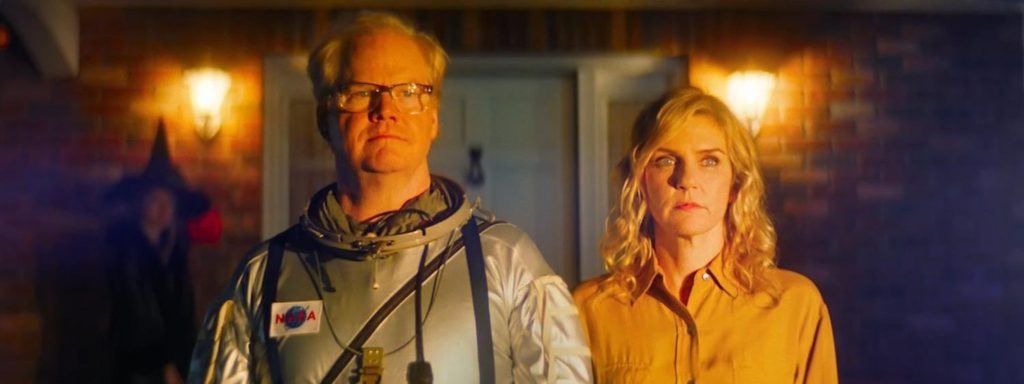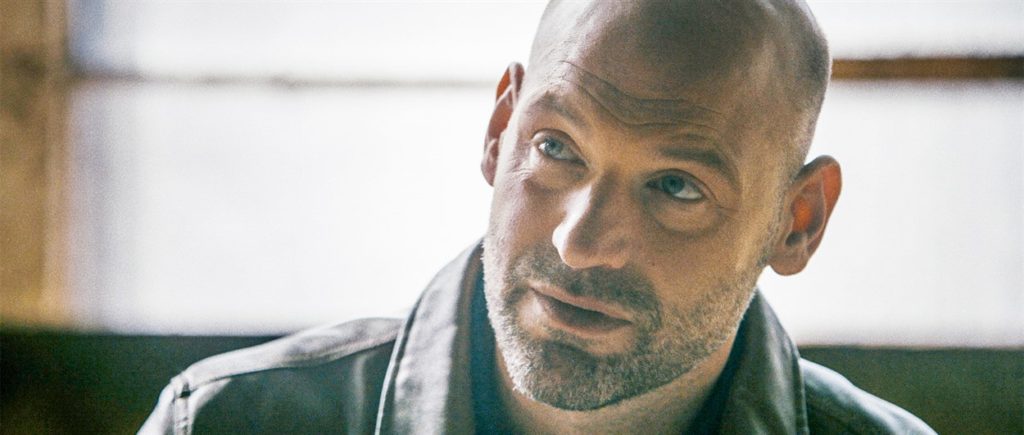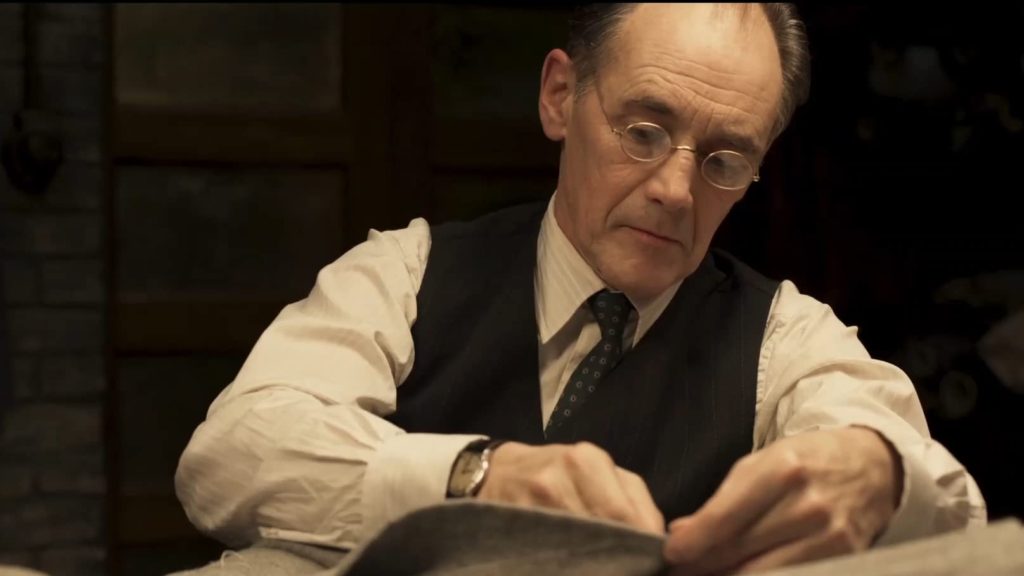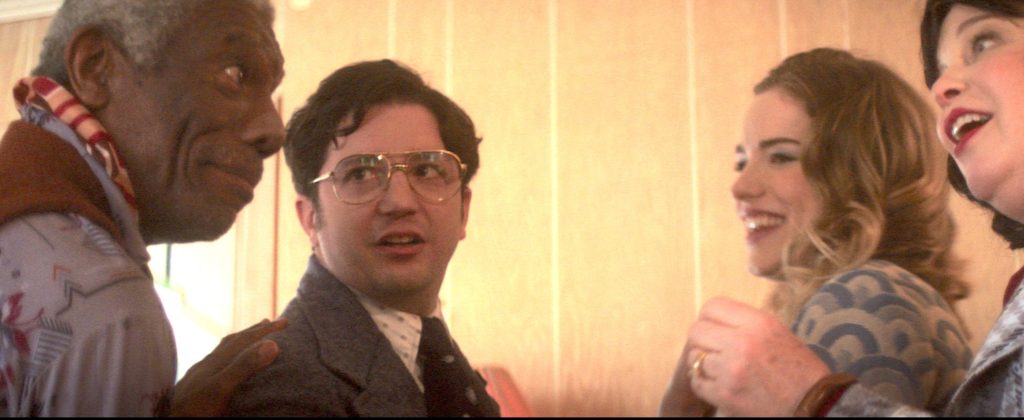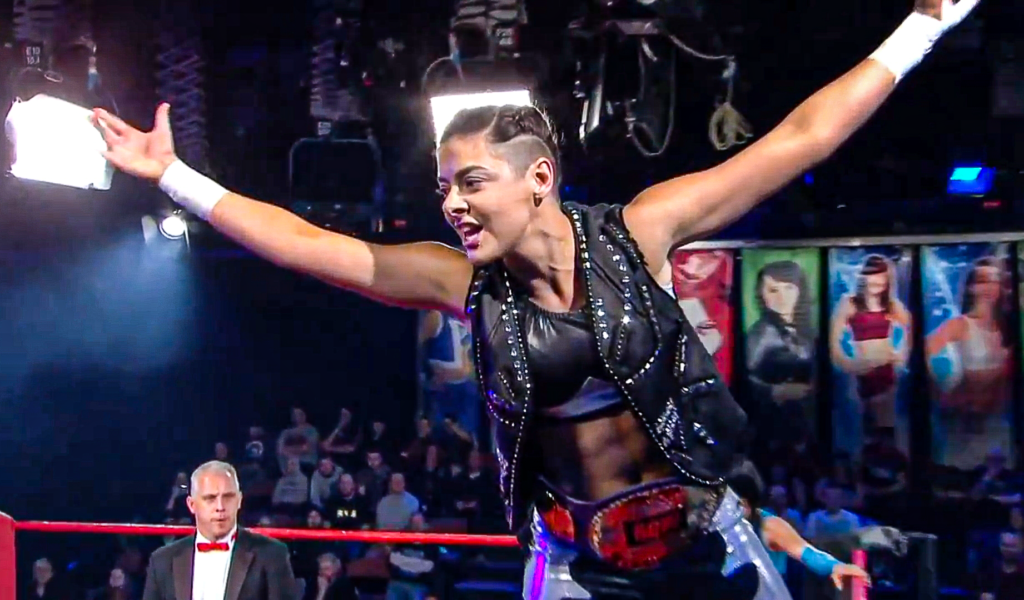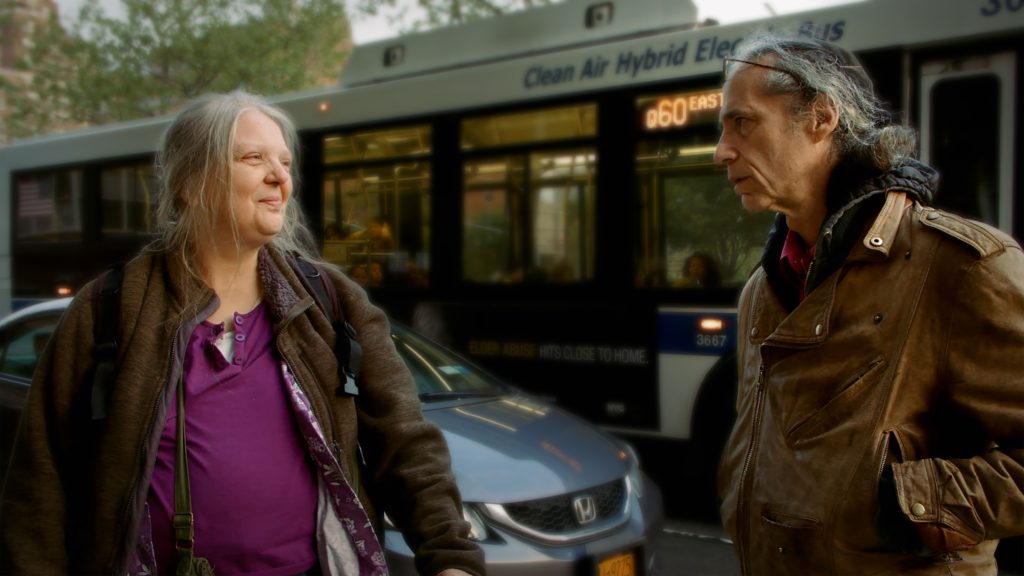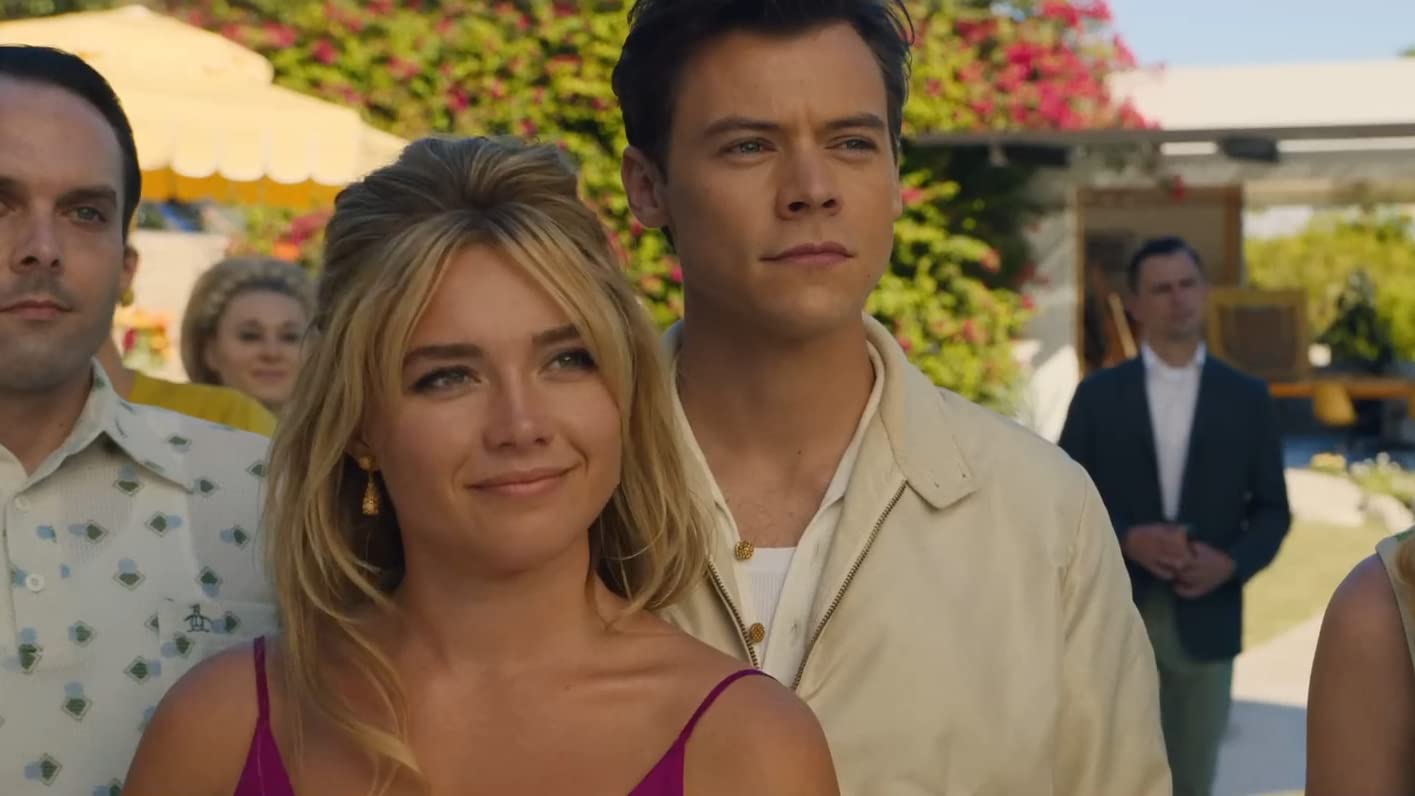
Don’t Worry, Darling is a paranoid thriller that, most unfortunately, stops thrilling halfway through. We’re in the late 1950s, and Alice (Florence Pugh) is a housewife married to Jack (pop star Harry Styles), an engineer. They live in a company town, an idyllic, color-saturated suburb improbably planted in the remotest corner of the Mojave Desert. All the men work on a highly secret R&D project, and no one is to leave the company’s property, “where it’s safe.”
Everyone is going full Mad Men with cocktails and cigarettes, Alice and Jack are gloriously oversexed, and Don’t Worry, Darling sports a delightful period soundtrack. It’s a much better Stepford Wives, only really hedonistic. So far, so good.
But Alice sees some things that are disturbing. Is she hallucinating? Or has she stumbled upon the company’s evil secret? During this Am I Going Crazy part of the movie, I started to think that this is taking way too long. And then it got less and less interesting.
Part of the problem is heavy-handedness, with an unnecessarily overt Order vs Chaos message. Poor Alice even utters the words, “you’re gaslighting me.” In case we don’t get it, I guess.
And there are (I think two) brief scenes with Alice and Jack at their same ages, but set in the present, where they are having a lot less fun. These bits are confusing and superfluous.
None of this is the fault of Pugh or Styles. It’s all in the increasingly less gripping and less coherent story.
Don’t Worry, Darling especially disappointed me because director Olivia Wilde and screenwriter Kate Silberman had previously collaborated on the smart and sweet Booksmart.
Olivia Wilde the actress is very good as the pack leader who wrangles the other wives. Nick Kroll shines as her husband, a good timer who has drunk the Kool-Aid. I always love seeing Chris Pine, and he’s predictably good here as the corporate leader admired by the other men to a cult-like degree. Timothy Simons (Veep) is perfect as the company physician/enforcer.
My friend Keith that he was distracted from the story when he recognized the building that stands in for the evil corporation’s secret headquarters. It turns out that it is a home in Twentynine Palms, California, owned by the late Huell Howser, the relentlessly affable host of California Gold, where each week he would discover another a-MAZ-ing roadside attraction.
All I’ll say about the film’s off-screen controversy is that no one would raise much fuss about a male movie director dating a much younger female star, which has been going on since the birth of cinema.
Don’t Worry, Darling is in theaters.


